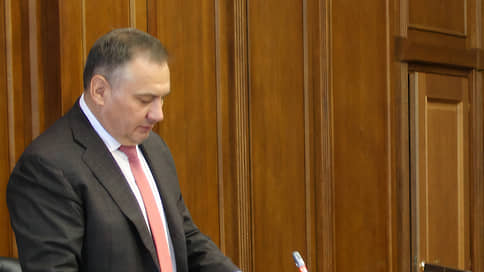The chairman went under state protection – Newspaper Kommersant No. 173 (7374) of 09/20/2022
[ad_1]

The High Qualifications Board of Judges (HQJC) on Monday recommended that Nikolai Novikov be reappointed to the post of Chairman of the Moscow Arbitration Court. At the request of the judge himself, who was first appointed to this post in May 2017, the consideration of the personnel issue was held behind closed doors. Traditionally, competition for judicial positions is announced about six months before a vacancy appears, but Mr. Novikov will have more than eight months to spare.
The chairman of the Moscow Arbitration Court (ACCM) asked to hold the meeting of the HQCC on his issue behind closed doors: he explained this by the fact that he was under state protection and was afraid of publicizing the personal data of his family members. This caused no objections from colleagues, and the rest of the discussion took place behind closed doors. After that, it was announced that Nikolai Novikov received the recommendation of the HQC and thanked his colleagues for their trust. In an interview with Kommersant, the chairman of the Moscow arbitration did not specify whether he was asked any questions during the discussion of the candidacy.
The recommendation of the HQCJ is only the first stage in the procedure for appointing a judge. If approved by the collegium, the candidate will still have to go through a personnel commission in the presidential administration and wait for the decree of the head of state.
At the beginning of the 2000s, Mr. Novikov managed to work with the current First Deputy Head of the Presidential Administration, Sergei Kiriyenko, who was then the presidential envoy in the Volga Federal District: from 2000 to 2001, Nikolai Novikov headed the legal department of the embassy’s apparatus, and then became deputy head of the district department of the Ministry of Justice. In 2004, he was appointed Chairman of the Arbitration Court of the Samara Region and served two terms in this post. The next step in his career as a judge was his appointment to Tatarstan, from where he transferred to Moscow in 2017. Then Mr. Novikov also received a recommendation without further questions: he did not have any relatives who would give reason to suspect a conflict of interest (wife is a housewife, parents are pensioners, children study, and sister works in Bashkiria).
The need for state protection for judges is not so rare – usually it is associated with threats that a judge receives during the consideration of a case. So, in 2012, Khamovnichesky court judge Marina Syrova, who delivered the verdict in the Pussy Riot case, was taken under state protection, and in 2014, Moscow City Court judge Natalya Nikishina, the author of the verdict in the Bolotnaya case, was taken under state protection. However, arbitrators do not need such protection as often as criminal judges.
Julius Tai, managing partner of AB Bartolius, admits that he does not remember a case when an arbitration judge would need state protection, although judges considering criminal cases, and even the chairman of the Moscow City Court, Olga Egorova, quite often resorted to such a measure of protection. The expert does not rule out that in the case of the chairman of the ASGM, such measures are related to the case of the ex-judge of the same court, Elena Kondrat. Increasingly closed courts, however, is a general trend that has become particularly evident since the introduction of covid restrictions, Mr Tai adds.
Recall that in 2021, the then acting ASGM judge Elena Kondrat became a defendant in the case of mediation in the transfer of a bribe, and the Moscow Regional Court is considering the case of her son Nikolai, who is accused of organizing the murder of his driver and preparing an assassination attempt on another judge of the ASGM, who, according to investigators, he wanted to avenge his mother’s criminal prosecution. Ms. Kondrat herself connects her criminal case with the conflict that she had with the leadership of the ASGM, whose recommendations on the cases she considered she allegedly refused to comply with.
[ad_2]
Source link








